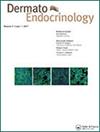Improving United States HPV vaccination rates: Factors predictive of parental attitudes towards middle school entry requirements.
IF 4.8
4区 医学
引用次数: 0
Abstract
Although the human papillomavirus (HPV) vaccine is effective at preventing infection and certain types of cancer, uptake is suboptimal. HPV vaccine requirements for school entry are an underutilized strategy to increase HPV vaccine uptake among adolescents. The purpose of this study was to understand the factors that are predictive of parents' attitudes toward schools requiring the HPV vaccine for entry into middle school. Parents of adolescents ages 11-12 y were recruited to participate in an online survey via Qualtrics. Descriptive frequencies were obtained, and sequential regression analyses were conducted controlling for demographic characteristics. A total of 1,046 participants were included in the analysis. The mean age was 40.3 y (SD = 6.3) and the majority of participants were White (74.4%) and had some college education or higher (80.9%). Participant's gender, political affiliation, urban/rural setting, and education level were significantly associated with attitudes toward school entry requirements. Adding psychosocial items related to perceptions of benefits, risks, and social norms significantly increased the amount of variance explained in the model [(ΔR2 = .312, F(5, 1036) = 132.621)]. Perceived social norms was the strongest predictor of attitudes [β = 0.321]. The results of this study can be used to inform policy changes around school-entry requirements in the United States. Further studies are needed to assess the influence of perceived social norms in vaccine hesitant groups.提高美国 HPV 疫苗接种率:家长对初中入学要求态度的预测因素。
尽管人类乳头瘤病毒 (HPV) 疫苗能有效预防感染和某些类型的癌症,但其接种率却不尽如人意。入学接种 HPV 疫苗的要求是提高青少年 HPV 疫苗接种率的一种未充分利用的策略。本研究旨在了解家长对学校要求初中入学接种 HPV 疫苗的态度的预测因素。我们通过 Qualtrics 征集了 11-12 岁青少年的家长参与在线调查。调查获得了描述性频率,并对人口统计学特征进行了序列回归分析。共有 1,046 名参与者参与了分析。平均年龄为 40.3 岁(SD = 6.3),大多数参与者为白人(74.4%),具有一定的大学或更高学历(80.9%)。参与者的性别、政治派别、城市/农村环境和教育水平与对入学要求的态度有显著相关。加入与利益、风险和社会规范认知相关的社会心理项目后,模型的解释变异量明显增加[(ΔR2 = .312, F(5, 1036) = 132.621)]。感知社会规范对态度的预测作用最强[β = 0.321]。本研究的结果可为美国入学要求方面的政策变化提供参考。还需要进一步的研究来评估感知的社会规范对疫苗犹豫群体的影响。
本文章由计算机程序翻译,如有差异,请以英文原文为准。
求助全文
约1分钟内获得全文
求助全文
来源期刊

Human Vaccines & Immunotherapeutics
BIOTECHNOLOGY & APPLIED MICROBIOLOGY-IMMUNOLOGY
自引率
8.30%
发文量
0
审稿时长
1 months
期刊介绍:
(formerly Human Vaccines; issn 1554-8619)
Vaccine research and development is extending its reach beyond the prevention of bacterial or viral diseases. There are experimental vaccines for immunotherapeutic purposes and for applications outside of infectious diseases, in diverse fields such as cancer, autoimmunity, allergy, Alzheimer’s and addiction. Many of these vaccines and immunotherapeutics should become available in the next two decades, with consequent benefit for human health. Continued advancement in this field will benefit from a forum that can (A) help to promote interest by keeping investigators updated, and (B) enable an exchange of ideas regarding the latest progress in the many topics pertaining to vaccines and immunotherapeutics.
Human Vaccines & Immunotherapeutics provides such a forum. It is published monthly in a format that is accessible to a wide international audience in the academic, industrial and public sectors.
 求助内容:
求助内容: 应助结果提醒方式:
应助结果提醒方式:


